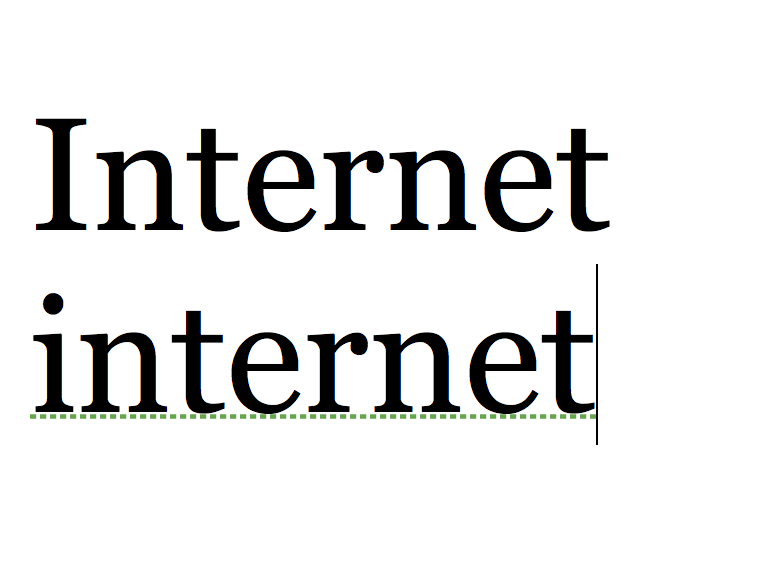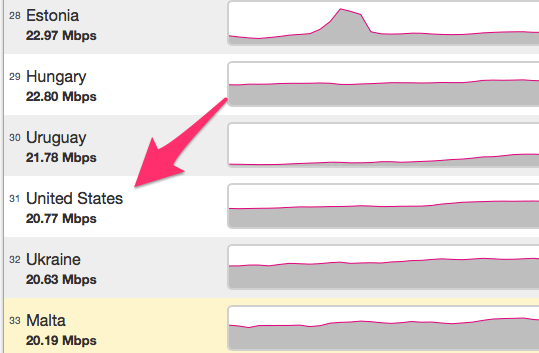Tag Archives: Internet
Enjoy the Internet while you can

This has been in the cards for a long time, but ICANN, the Los Angeles-based organization that has its fingers in many aspects of how the Web operates, will no longer be managed by the United States, but – according to this article in the Washington Post – by “an international body made up of technologists, businesses, governments and public interest advocates.”
This is a mistake. While I don’t have an inherent problem with a nebulous international body overseeing the continued development of the operation of the Web, what I DO have a problem with is that this will allow oppressive regimes who have no interest in freedom of expression or the open standards and ideas that the Web is built upon, and they could very well turn back the Internet clock, as it were.
I’m not being facetious when I say this could change the way the Web works forever. It could cease being the glorious, anachronistic Wild West that it always has been, and instead be regulated according to the demands of those who wish to stifle it and the free exchange of information it represents. Some governments, who have expended huge amounts of money and effort to limit what their citizens can see on the Internet, have been salivating over this moment for decades; we can all imagine why.
You’ll notice on page six of the transition assessment (.pdf here) states “This model encourages all parties—including businesses, technical experts, civil society, and governments—to participate and to reach consensus through a bottom-up process.” The problem is, governments will have ultimate decision-making capabilities and will overrule other stakeholders. I’m astounded there is not more attention being paid to this, or that the news isn’t covering it and, frankly, that people aren’t rioting. If they’re so willing to riot over the G20, which is *also* a multinational gathering – why not this? We should be very careful about who has influence over the future growth of the Web.
So enjoy the Web while you can, it could be changing soon.
Internet is capitalized!

I always hammer home to my students that the term ‘Internet’ is capitalized if you are referring to the global network we all know and love. One of my students sent me an email earlier today asking if that was still necessary, since apparently the Associated Press Stylebook will no longer make that requirement, as announced in a tweet (which is not capitalized. At least, not yet).
We will lowercase internet effective June 1, when the 2016 Stylebook launches. #ACES2016 pic.twitter.com/nGz63zc5YP
— APStylebook (@APStylebook) April 2, 2016
They are wrong. Internet is a contraction of the terms ‘interconnected’ and ‘network;’ you can have *an* internet, or you can be talking about *the* Internet. The latter is a proper noun, distinguished from other internets, and should be capitalized. It’s disheartening to see that a well-regarded guide like this is being so misguided.
Of course, they also use ‘lowercase’ as a verb, so I think it’s time to find another style guide.
And while we’re at it, ‘GIF’ is pronouned with a hard ‘G!’ It’s not peanut butter.
Data speed record broken with existing copper wire
One of the big problems we are having these days is that our Internet speeds simply aren’t fast enough. If the extent of your Internet usage is reading webpages and checking email then it likely is, but anything beyond that and you’ve probably said to yourself ‘this connection is slow.’ Slow connections can manifest in many ways including blurry video, slow file downloads, long page-load times, and others. Not only that, even if you have a fast connection, many, many other aspects can affect your speeds. Speed of the transmitter, conditions on the network, type of conduit, and so on.
Cable companies offer tiered packages, but do you really get faster speeds? You might, but as any cable company will have written in their agreement with you, those advertised speeds are not guaranteed.
Coupled with the fact that the U.S. lags woefully behind many other countries for high-speed Internet access and the much-vilified potential merger of not just the two largest cable companies in the country but the two most hated as well – Time-Warner and Comcast – the future doesn’t look good. (Below graphic from gottabemobile.com)
But there are some bright spots. Google has been laying down superfast fiber in some cities, and some regional ISPs are doing the same even while those cities try desperately, and I mean desperately, to stop it. Even CenturyLink offers high-speed fiber in some areas of North Las Vegas. Traditional cable companies are scared.
The big problem with fiber is it requires a whole rebuilding of the network infrastructure, ripping up roads, yards, and utilities, putting new hardware in place: The cost for Google alone could rise into the billions, with the cost of a country-wide revamp costing much, much more. And even with fiber, the wire that actually goes into your house, known as the last mile, is still copper although similar advancements have been made there as well.
But there may be hope for us all yet, and perhaps a hidden respite for the beleaguered cable companies. Researchers at Bell Labs managed to create record-breaking speeds of 10 Gigabits per second across plain old copper wire (press release from Alcatel-Lucent at this link). That’s crushingly fast, especially since most of us deal with speed in the Megabits per second, and even fiber provides around 1 Gigabit per second. In other words, it’s one thousand times faster than what most of us deal with right now.
If a technology like this could be deployed, it could be a huge boon. Existing infrastructure could be used, costs could be kept down, availability of fast broadband could be accessible to almost everyone, streets wouldn’t need to be ripped up, and the U.S. could hopefully not be in the embarrassing position of having such poor broadband access. On the other hand, this was a lab experiment, and the L:R ratio (lab-to-reality ratio, a term I just made up) can be years for this kind of thing. Still, it’s a promising development.


